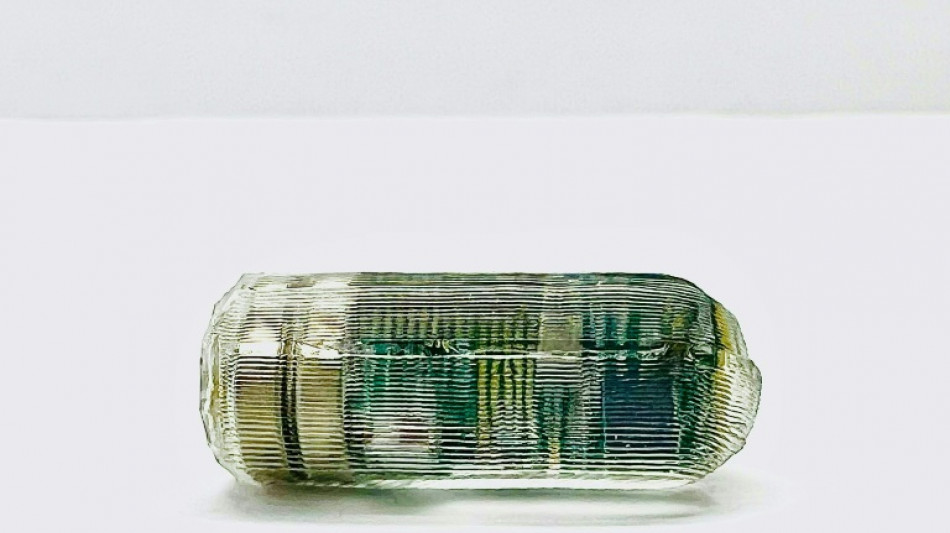
-
 Australia's Head backs struggling opening partner Weatherald
Australia's Head backs struggling opening partner Weatherald
-
'Make emitters responsible': Thailand's clean air activists

-
 Zelensky looks to close out Ukraine peace deal at Trump meet
Zelensky looks to close out Ukraine peace deal at Trump meet
-
MCG curator in 'state of shock' after Ashes Test carnage

-
 Texans edge Chargers to reach NFL playoffs
Texans edge Chargers to reach NFL playoffs
-
Osimhen and Mane score as Nigeria win to qualify, Senegal draw

-
 Osimhen stars as Nigeria survive Tunisia rally to reach second round
Osimhen stars as Nigeria survive Tunisia rally to reach second round
-
How Myanmar's junta-run vote works, and why it might not

-
 Watkins wants to sicken Arsenal-supporting family
Watkins wants to sicken Arsenal-supporting family
-
Arsenal hold off surging Man City, Villa as Wirtz ends drought

-
 Late penalty miss denies Uganda AFCON win against Tanzania
Late penalty miss denies Uganda AFCON win against Tanzania
-
Watkins stretches Villa's winning streak at Chelsea

-
 Zelensky stops in Canada en route to US as Russia pummels Ukraine
Zelensky stops in Canada en route to US as Russia pummels Ukraine
-
Arteta salutes injury-hit Arsenal's survival spirit

-
 Wirtz scores first Liverpool goal as Anfield remembers Jota
Wirtz scores first Liverpool goal as Anfield remembers Jota
-
Mane rescues AFCON draw for Senegal against DR Congo

-
 Arsenal hold off surging Man City, Wirtz breaks Liverpool duck
Arsenal hold off surging Man City, Wirtz breaks Liverpool duck
-
Arsenal ignore injury woes to retain top spot with win over Brighton

-
 Sealed with a kiss: Guardiola revels in Cherki starring role
Sealed with a kiss: Guardiola revels in Cherki starring role
-
UK launches paid military gap-year scheme amid recruitment struggles

-
 Jota's children join tributes as Liverpool, Wolves pay respects
Jota's children join tributes as Liverpool, Wolves pay respects
-
'Tired' Inoue beats Picasso by unanimous decision to end gruelling year

-
 Thailand and Cambodia declare truce after weeks of clashes
Thailand and Cambodia declare truce after weeks of clashes
-
Netanyahu to meet Trump in US on Monday

-
 US strikes targeted IS militants, Lakurawa jihadists, Nigeria says
US strikes targeted IS militants, Lakurawa jihadists, Nigeria says
-
Cherki stars in Man City win at Forest

-
 Schwarz records maiden super-G success, Odermatt fourth
Schwarz records maiden super-G success, Odermatt fourth
-
Russia pummels Kyiv ahead of Zelensky's US visit

-
 Smith laments lack of runs after first Ashes home Test loss for 15 years
Smith laments lack of runs after first Ashes home Test loss for 15 years
-
Russian barrage on Kyiv kills one, leaves hundreds of thousands without power

-
 Stokes, Smith agree two-day Tests not a good look after MCG carnage
Stokes, Smith agree two-day Tests not a good look after MCG carnage
-
Stokes hails under-fire England's courage in 'really special' Test win

-
 What they said as England win 4th Ashes Test - reaction
What they said as England win 4th Ashes Test - reaction
-
Hong Kongers bid farewell to 'king of umbrellas'

-
 England snap 15-year losing streak to win chaotic 4th Ashes Test
England snap 15-year losing streak to win chaotic 4th Ashes Test
-
Thailand and Cambodia agree to 'immediate' ceasefire

-
 Closing 10-0 run lifts Bulls over 76ers while Pistons fall
Closing 10-0 run lifts Bulls over 76ers while Pistons fall
-
England 77-2 at tea, need 98 more to win chaotic 4th Ashes Test

-
 Somalia, African nations denounce Israeli recognition of Somaliland
Somalia, African nations denounce Israeli recognition of Somaliland
-
England need 175 to win chaotic 4th Ashes Test

-
 Cricket Australia boss says short Tests 'bad for business' after MCG carnage
Cricket Australia boss says short Tests 'bad for business' after MCG carnage
-
Russia lashes out at Zelensky ahead of new Trump talks on Ukraine plan

-
 Six Australia wickets fall as England fight back in 4th Ashes Test
Six Australia wickets fall as England fight back in 4th Ashes Test
-
New to The Street Show #710 Airs Tonight at 6:30 PM EST on Bloomberg Television

-
 Dental Implant Financing and Insurance Options in Georgetown, TX
Dental Implant Financing and Insurance Options in Georgetown, TX
-
Man Utd made to 'suffer' for Newcastle win, says Amorim

-
 Morocco made to wait for Cup of Nations knockout place after Egypt advance
Morocco made to wait for Cup of Nations knockout place after Egypt advance
-
Key NFL week has playoff spots, byes and seeds at stake

-
 Morocco forced to wait for AFCON knockout place after Mali draw
Morocco forced to wait for AFCON knockout place after Mali draw
-
Dorgu delivers winner for depleted Man Utd against Newcastle


Vibrating pill, ingestible sensor: mini robots tackle gut disorders
A pill that vibrates to relieve constipation, a sensor that can be tracked in the gut -- medical researchers are turning to tiny robots to treat or diagnose gastrointestinal disorders.
"This is a very booming field," said Saransh Sharma, a doctoral student at the California Institute of Technology (Caltech) involved in the development of the ingestible diagnostic sensor.
"You have medical robots that are so small you can just send them inside a person using the oral passage and they can do a lot of sensing and actuation inside the gut," Sharma told AFP.
About 16 of every 100 adults in the United States suffer from symptoms of constipation, according to the US health authorities, and the number doubles for Americans over the age of 60.
Researchers at the Massachusetts Institute of Technology (MIT) and Caltech have developed an ingestible sensor that can be monitored as it travels through the digestive tract.
The device, 20 millimeters in length and eight mm in diameter, could help physicians diagnose gastrointestinal motility disorders that prevent food from moving normally through the digestive tract.
The capsule's location reveals where a slowdown is taking place.
"That gives the doctor a lot of the essential information to do a better job in the curing and the diagnosis and the treatment plan," Sharma said.
The sensor could also provide an alternative to invasive procedures such as endoscopy or other diagnostic techniques such as nuclear imaging, X-rays or catheters.
It has been tested on pigs and the team behind the research hopes to eventually obtain the approval of the US Food and Drug Administration for human clinical trials.
"If we can demonstrate a device inside large animals like pigs up to a very high confidence, we can say that it will scale very well in human anatomy as well," Sharma said.
The authors published the results of their research on Monday in the journal Nature Electronics.
They said the sensor works by detecting a magnetic field produced by an electromagnetic coil located outside of the body.
The strength of the magnetic field varies with distance from the coil and the sensor's position within the digestive tract can be calculated to within millimeters based on measurement of the magnetic field.
- Vibrating capsule -
While the ingestible sensor is still in the development phase, an Israeli company called Vibrant Gastro recently began marketing a vibrating capsule in the United States designed to relieve chronic constipation.
The drug-free Vibrant capsule is intended for constipation sufferers who have not received bowel relief after a month of laxative treatments. It has been FDA-approved.
In a Phase 3 clinical trial of 300 people, participants who took Vibrant had bowel movements significantly more frequently than those who took a placebo.
The Vibrant capsule produces gentle vibrations to stimulate the colon and increases the number and frequency of bowel movements, according to the manufacturer.
Y.Kobayashi--AMWN



